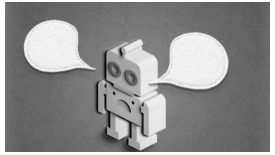Questões de Concurso
Foram encontradas 2.018 questões
Resolva questões gratuitamente!
Junte-se a mais de 4 milhões de concurseiros!
The intrigue behind the Bermuda Triangle
On a sunny day nearly 80 years ago, five Navy
planes took off from their base in Florida on a _________
training mission, known as Flight 19. Neither the planes nor
the crew were ever seen again. Thus was a legend born. The
Bermuda Triangle is an area roughly bounded by Miami,
Bermuda, and Puerto Rico. No one keeps statistics, but in
the last century, numerous ships and planes have simply
vanished without a trace within the imaginary triangle.
The disappearances have been attributed to the machinations of enormous sea monsters, giant squid, or extra-terrestrials. Alien abductions, the existence of a mysterious third dimension created by unknown beings, and ocean flatulence—the ocean suddenly spewing great quantities of trapped methane—have all been suggested as culprits.
The reality, say many, is far more prosaic. They argue that a sometimes treacherous Mother Nature, human error, shoddy __________________ or design, and just plain bad luck can explain the many disappearances.
"The region is highly traveled and has been a busy crossroads since the early days of European exploration," said John Reilly, a historian with the U.S. Naval Historical Foundation. "To say quite a few ships and airplanes have gone down there is like saying there are an ________ lot of car accidents on the New Jersey Turnpike—surprise, surprise."
(Fonte: National Geographic. — adaptado.)
Read Text I and answer the question.
Text I
Why We're Obsessed With the Mind-Blowing ChatGPT AI Chatbot
Stephen Shankland
Feb. 19, 2023 5:00 a.m. PT

This artificial intelligence bot can answer questions, write essays, summarize documents and write software. But deep down, it doesn't know what's true.
Even if you aren't into artificial intelligence, it's time to pay attention to ChatGPT, because this one is a big deal.
The tool, from a power player in artificial intelligence called OpenAI, lets you type natural-language prompts. ChatGPT then offers conversational, if somewhat stilted, responses. The bot remembers the thread of your dialogue, using previous questions and answers to inform its next responses. It derives its answers from huge volumes of information on the internet.
ChatGPT is a big deal. The tool seems pretty knowledgeable in areas where there's good training data for it to learn from. It's not omniscient or smart enough to replace all humans yet, but it can be creative, and its answers can sound downright authoritative. A few days after its launch, more than a million people were trying out ChatGPT.
But be careful, OpenAI warns. ChatGPT has all kinds of potential pitfalls, some easy to spot and some more subtle.
“It's a mistake to be relying on it for anything important right now,” OpenAI Chief Executive Sam Altman tweeted. “We have lots of work to do on robustness and truthfulness.” […]
What is ChatGPT?
ChatGPT is an AI chatbot system that OpenAI released in November to show off and test what a very large, powerful AI system can accomplish. You can ask it countless questions and often will get an answer that's useful.
For example, you can ask it encyclopedia questions like, “Explain Newton's laws of motion.” You can tell it, "Write me a poem," and when it does, say, "Now make it more exciting." You ask it to write a computer program that'll show you all the different ways you can arrange the letters of a word.
Here's the catch: ChatGPT doesn't exactly know anything. It's an AI that's trained to recognize patterns in vast swaths of text harvested from the internet, then further trained with human assistance to deliver more useful, better dialog. The answers you get may sound plausible and even authoritative, but they might well be entirely wrong, as OpenAI warns.
Adapted from: https://www.cnet.com/tech/computing/why-were-all-obsessedwith-the-mind-blowing-chatgpt-ai-chatbot/
